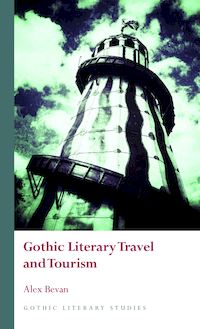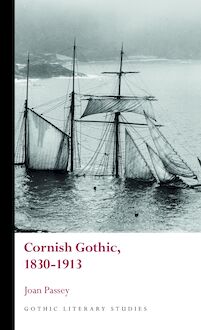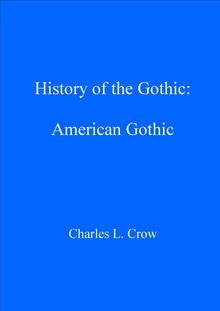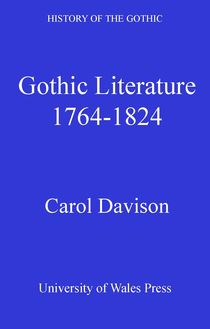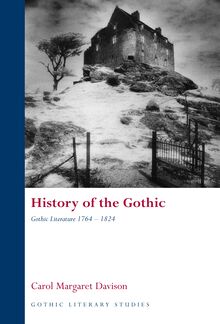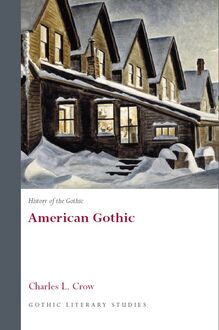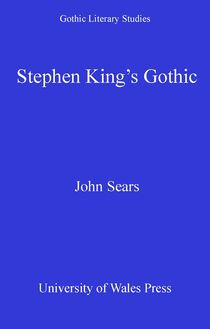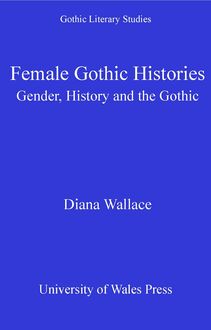-
 Univers
Univers
-
 Ebooks
Ebooks
-
 Livres audio
Livres audio
-
 Presse
Presse
-
 Podcasts
Podcasts
-
 BD
BD
-
 Documents
Documents
-
- Cours
- Révisions
- Ressources pédagogiques
- Sciences de l’éducation
- Manuels scolaires
- Langues
- Travaux de classe
- Annales de BEP
- Etudes supérieures
- Maternelle et primaire
- Fiches de lecture
- Orientation scolaire
- Méthodologie
- Corrigés de devoir
- Annales d’examens et concours
- Annales du bac
- Annales du brevet
- Rapports de stage
La lecture à portée de main
Vous pourrez modifier la taille du texte de cet ouvrage
Découvre YouScribe en t'inscrivant gratuitement
Je m'inscrisDécouvre YouScribe en t'inscrivant gratuitement
Je m'inscrisEn savoir plus
Vous pourrez modifier la taille du texte de cet ouvrage
En savoir plus

Description
Sujets
Informations
| Publié par | University of Wales Press |
| Date de parution | 15 février 2013 |
| Nombre de lectures | 0 |
| EAN13 | 9780708326916 |
| Langue | English |
Informations légales : prix de location à la page 0,2174€. Cette information est donnée uniquement à titre indicatif conformément à la législation en vigueur.
Extrait
THE FANTASTIC AND EUROPEAN GOTHIC
SERIES PREFACE
Gothic Literary Studies is dedicated to publishing groundbreaking scholarship on Gothic in literature and film. The Gothic, which has been subjected to a variety of critical and theoretical approaches, is a form which plays an important role in our understanding of literary, intellectual and cultural histories. The series seeks to promote challenging and innovative approaches to Gothic which question any aspect of the Gothic tradition or perceived critical orthodoxy.
Volumes in the series explore how issues such as gender, religion, nation and sexuality have shaped our view of the Gothic tradition. Both academically rigorous and informed by the latest developments in critical theory, the series provides an important focus for scholarly developments in Gothic studies, literary studies, cultural studies and critical theory. The series will be of interest to students of all levels and to scholars and teachers of the Gothic and literary and cultural histories.
SERIES EDITORS
Andrew Smith, University of Sheffield Benjamin F. Fisher, University of Mississippi
EDITORIAL BOARD
Kent Ljungquist, Worcester Polytechnic Institute Massachusetts Richard Fusco, St Joseph’s University, Philadelphia David Punter, University of Bristol Chris Baldick, University of London Angela Wright, University of Sheffield Jerrold E. Hogle, University of Arizona
The Fantastic and European Gothic
History, Literature and the French Revolution
Matthew Gibson
UNIVERSITY OF WALES PRESS CARDIFF 2013 -->
© Matthew Gibson, 2013
All rights reserved. No part of this book may be reproduced in any material form (including photocopying or storing it in any medium by electronic means and whether or not transiently or incidentally to some other use of this publication) without the written permission of the copyright owner. Applications for the copyright owner’s written permission to reproduce any part of this publication should be addressed to the University of Wales Press, 10 Columbus Walk, Brigantine Place, Cardiff CF10 4UP.
www.uwp.co.uk
British Library CIP Data A catalogue record for this book is available from the British Library.
ISBN 978-0-7083-2572-8 e-ISBN 978-0-7083-2691-6
The right of Matthew Gibson to be identified as author of this work has been asserted in accordance with sections 77 and 79 of the Copyright, Designs and Patents Act 1988.
Typeset in Wales by Eira Fenn Gaunt, Cardiff CPI Antony Rowe, Chippenham, Wiltshire
In memory of my sister-in-law, Sophie Arabella Gibson (1964–2011), a truly wonderful person, who is greatly missed by us all.
C ONTENTS
Acknowledgements
Introduction
1 Fantasy and Counter-Revolution in the Theory and Fiction of Charles Nodier
2 History and Politics in the Fantastic Fiction of Hoffmann, and his Reception in France
3 The Double Life of the Artist in the Récits fantastiques of Théophile Gautier, and the Rejection of Bourgeois Life under the July Monarchy
4 ‘A Life in Death a Death in Life’: the Legitimist Novels of Paul Féval and the Catastrophe of the Second Empire
5. Paul Féval’s Le Chevalier Ténèbre and Le Fanu’s ‘The Room in the Dragon Volant’: the Failures of the Bourbon Restoration
6. Robert Louis Stevenson’s ‘Olalla’, The Strange Case of Dr Jekyll and Mr Hyde and the Refutation of Utilitarian Morality
Conclusion
Notes
Short Chronology of Relevant Events
Bibliography
A CKNOWLEDGEMENTS
I would like to express my gratitude firstly to Terry Hale for his constant support and numerous illuminating conversations, without which the book could not have been written. I would also like to express my sincere thanks to Neil Mann for letting me draw upon his vast knowledge of occult and esoteric literature. Conversations with Madame de Staël (aka Anne Janowitz) at her salon in the British Library were also most stimulating in preparing this book. Finally, I would like to thank the staff of the Bibliothèque Nationale de France and the British Library for their courteous assistance when I was researching this work.
1
Introduction Fantastique, Frénétique and European Gothic
The following book is less a corrective to existing theories of the Fantastic in literature than a complement to them. It has struck me for some time that Todorov’s formalist definition of the ‘Fantastic’, which draws from a kind of isotopic examination of a whole raft of Fantastic or Gothic novels (to use the accepted English term), represents a developed understanding of the generic features of this type of literature which does not apply at all in the original applications of the term Fantastic/ fantastique. After the fall of Napoleon in 1815, and the Restoration of the Bourbon monarchy, there arose quite self-consciously in France the movement known as le ‘Romantisme’. This movement blended the fruits of the German Sturm und Drang movement of Schiller and Goethe with the couleur locale , picaresque adventure and ‘merveilleux’ provided by writers such as Scott, Byron, Lewis and Maturin (Coleridge, Shelley and Wordsworth were not remotely considered by French critics until many decades later). Such a refreshing literary trend provided a ground for theorists like Amédée Pichot and Charles Nodier to proselytize for a new type of literature that broke with the conventions of French classicism and the unities of time, space and action, and which stretched the boundaries of the imagination. Interestingly enough, in France at least this type of literature, le ‘Romantisme’, appears to have been equated more with the ‘roman’ or novel than with poetry or drama, partly due to the ease with which the novel could break classical, Aristotelian strictures of taste. 1 The French development of le Romantisme thus differs somewhat subtly from the conventional Anglo-American description of Romanticism, and this difference is also manifested through descriptions of that part of Romantic literature which British critics usually call the Gothic, but which in France is the somewhat different, although convergent form, known as the fantastique and in certain instances the frénétique . These latter two terms are themselves not entirely congruent, since the frénétique tends to be linked more to the macabre, but are by no means hard and fast in their definitions or differences.
The French reading public had for some time been aware of the roman noir genre, which largely consisted of translations of Ann Radcliffe and Clara Reeve Gothic novels into French. 2 Anthony Glinoer has argued, in tune with the Marquis de Sade, that translations of novels like The Mysteries of Udolpho in the mid 1790s reflected the macabre nature of the times in which the French public found itself then, 3 a factor compounded, as Terry Hale has shown, by the falling standards of education caused by the murder of Catholic priests from teaching orders, which allowed the general French population to become more superstitious than rational in the era of Reason and the cult of the Supreme Being. 4 With the fall of Napoleon there appears to have been a new market for imaginative literature, and hence there was a readiness to embrace the exotic.
Attempts to break with the classical past, chiefly spearheaded by Nodier and his acolytes at L’Arsenal salon, were accompanied by his various attempts to either praise or distance himself from the more extreme types of this literature. Initial condemnations of the ‘frénétique’, which school consisted of an over-indulgence in the macabre and violation of natural laws, 5 may have been an attempt on Nodier’s part to make the residue of the ‘romantique’ more palatable to the Classicists, but Nodier’s own art and ideas increasingly verged towards excessive indulgence of the imagination, including an acceptance of the supernatural and portrayals of the horrific. The publication of Hoffmann’s work into French at the end of the Restoration period, and Sir Walter Scott’s failed attempt to condemn his work and that of the recent German school (of which Hoffmann was the foremost exponent), led to the French critics identifying a new school of literature: the ‘fantastique’. This same term has been made famous in recent years through the work of Todorov, Brooke-Rose, Cornwell and others, and is now most closely identified in British literature with the Gothic. It should be stressed that while Todorov’s own definition of the fantastique is an indispensible aspect of the British Gothic novel (and of some later French fantastique and frénétique novels), it in fact has little to do with the initial descriptions of the fantastique in France and celebrations of Hoffmann’s writing.
The bizarreness and absurdity which Scott identified in Hoffmann’s work was interpreted as a great advantage by Nodier, J. J. Ampère and other enthusiasts. These critics particularly appreciated the German writer’s ability to create works that are ‘by turns mystical or familiar, pathetic or buffoonish’. 6 It is in this feature that we see an understanding of the Fantastic that is entirely at odds with the Todorovian definition. For Todorov the crucial feature of the Fantastic is the prolonged tension between an ‘uncanny’ and a ‘marvellous’ explanation for events that break the naturalist assumptions of the reader, causing a ‘hesitation’ that is felt by the reader but frequently channelled through the perspective of a central character. 7 Such an understanding depends upon an Enlightenment perception of nature as material, regular, and as excluding the possibility of the age-old beliefs which had crowded medieval literature. What appears, however, to have impressed Nodier and other critics so much about Hoffmann’s writing was his ability to move imperceptibly, without the marked foregrounding of a hesitation, between a naturalist and supernatural mode.
As I argued in Dracula and the Eastern Question , one of the central features of British Gothic writing is the often divergent mixture of li
-
 Univers
Univers
-
 Ebooks
Ebooks
-
 Livres audio
Livres audio
-
 Presse
Presse
-
 Podcasts
Podcasts
-
 BD
BD
-
 Documents
Documents
-
Jeunesse
-
Littérature
-
Ressources professionnelles
-
Santé et bien-être
-
Savoirs
-
Education
-
Loisirs et hobbies
-
Art, musique et cinéma
-
Actualité et débat de société
-
Jeunesse
-
Littérature
-
Ressources professionnelles
-
Santé et bien-être
-
Savoirs
-
Education
-
Loisirs et hobbies
-
Art, musique et cinéma
-
Actualité et débat de société
-
Actualités
-
Lifestyle
-
Presse jeunesse
-
Presse professionnelle
-
Pratique
-
Presse sportive
-
Presse internationale
-
Culture & Médias
-
Action et Aventures
-
Science-fiction et Fantasy
-
Société
-
Jeunesse
-
Littérature
-
Ressources professionnelles
-
Santé et bien-être
-
Savoirs
-
Education
-
Loisirs et hobbies
-
Art, musique et cinéma
-
Actualité et débat de société
- Cours
- Révisions
- Ressources pédagogiques
- Sciences de l’éducation
- Manuels scolaires
- Langues
- Travaux de classe
- Annales de BEP
- Etudes supérieures
- Maternelle et primaire
- Fiches de lecture
- Orientation scolaire
- Méthodologie
- Corrigés de devoir
- Annales d’examens et concours
- Annales du bac
- Annales du brevet
- Rapports de stage

